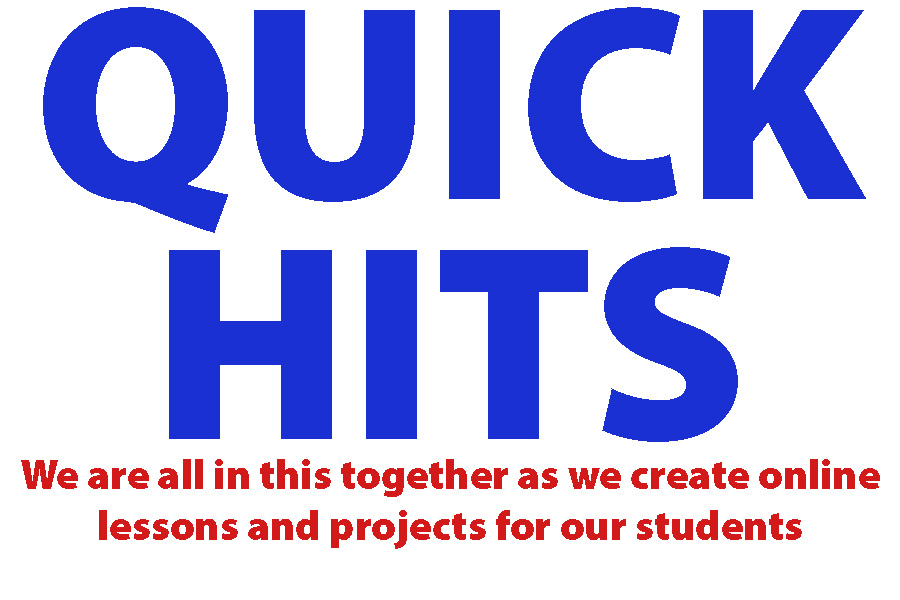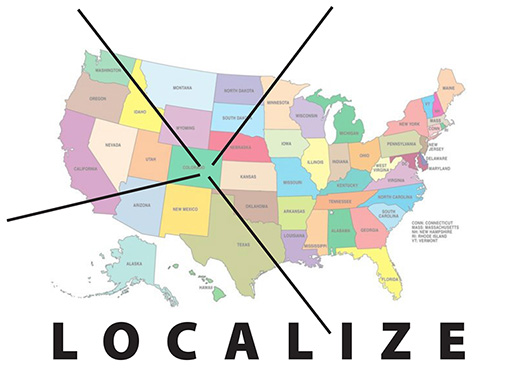The JEA listerv has a thread on how to cover sports when school teams are not practicing or playing. Here are some ideas from JEA members, plus some added items.
A feature on what athletes go through when they have to rehab a serious injury. A related story on physical therapists would go along with it and may give insight to the readers on what it takes to become one.
Another idea would be a feature story on the school’s athletic trainer or if students have an athletic training class.
If your school has a long history, a great historical feature could also have your students doing research into how the Spanish Flu and other social disruptions changed local and school sports seasons in different eras — the Spanish Flu, the two World Wars, local disasters such as hurricanes, earthquakes, etc.
Here’s something from Fox Sports about what sportswriters do when there are no events.
Journalists at The Athletic and other sports sites are doing lots of statistical analyses, “Best Of” and “Greatest Ever” listicles, etc. In fact, even if you don’t have a subscription, you can go to their front page and get a sense of what they’re doing every day.
Some schools around the country are starting E-Sports programs, and maybe your school has some quite dedicated and skilled e-sports players. Profiles and features could be reported remotely.
There is a very real possibility of high school spring sports seasons being canceled, so how do we handle that — possibly short little profiles as send-offs for seniors who didn’t have that last chance to compet?
One student took photos of his ballerina sister on pointe while attending her ballet class in Zoom. Can dance be considered a sport?
Lots of gyms/trainers are offering remote workouts via Zoom and other services.
A photo essay (taken from a respectful distance) of athletes practicing by themselves, in driveways and open areas. For instance: shooting baskets, dribbling soccer balls, tossing tennis balls against the garage door (don’t tell dad), doing calisthenics…
Here’s a post from Jeff Browne, Quill and Scroll executive director, that was published in the April 2 issue of The Scroll, the society’s weekly e-newsletter:
Good sports coverage doesn’t have to stop
If you don’t already know, probably the single best resource for high school journalism advisers is the Journalism Education Association’s email listserv, which seems like a dated concept, but most of us on it are pretty dated ourselves.
Earlier this week, an adviser in Plano, Texas asked the group what sort of stories her students could work on now that (deep, heavy sigh followed by sobbing) THERE ARE NO GAMES TO COVER!!!
For her part, the adviser had already assigned some great ideas to her students about athletes training, students participating in esports and general fitness. The list responded, predictably, with another great set of ideas that included:
- Will high school seniors be affected by the NCAA extending eligibility for current college athletes?
- What sort of other disruptions — natural disasters, world wars, disease, etc. — have caused cancellations of seasons in your school and community in the past?
- What are the conditions that need to be present before a state high school activities organization will sanction interscholastic play once the COVID-19 crisis subsides?
- Will coaches be paid supplemental pay if their seasons have been canceled?
I teach the Sports Writing class at the University of Iowa. This fall, hopefully, will be my fourth year teaching the class at UI. Before becoming a journalism educator, I was a sports reporter and columnist for The Sun-Sentinel in Fort Lauderdale, Florida. I covered everything from community sports to the NFL and a couple of Final Fours.
The class I teach at UI is, in essence, a multimedia sports writing class because we write stories for print and online, and we write scripts for both audio and video pieces. We also do some fun stuff, like how-to pieces, listicles, historical features and statistical analyses, which students can also work on during these times.
In total, only about half the work the students produce and analyze is connected to actual game coverage — advances (previews), game stories, columns and sidebars. The rest of the work the students do in my class is meant to be timeless, meaning it doesn’t rely on a game that’s either just been completed or is coming up.
So the students do a lot of reading from some of the great sports reporters of our time, including Joe Posnanski, Wright Thompson, and others. The students’ two most heavily weighted assignments are a personal memoir related to sports and a long profile that reads like a short story.
The personal memoir story is one in which the students tell a personal story about triumph, perseverance, training — even fandom — that can help someone else learn a little about their own life. Students have written about hunting trips with their father, learning how to master a video game, and being gravely injured while skiing, among other topics.
The long-form profile challenges them to write about something other than sanctioned NCAA varsity sports or even team sports. They’ve written about billiards champions, Crossfit wannabes, and competitive darts players (dartists? darters?).
A few of the best personal memoirs from just one semester’s syllabus that students have analyzed and mimicked:
- “Learn to Dunk” by Michael McKnight, Sports Illustrated, 2015
- “Board in the Florida Suburbs” by Chris Wiewora, Atticus Review, Oct. 13, 2015
- “King of Tides” by Kim Cross, Southwest Magazine, July 2015
A few of the best long-form profiles from the same semester they’ve analyzed and mimicked:
- “Zilong Wong and the Cosmic Tale of the White Dragon” by John Brant, Bicycling, Oct. 28, 2015.
- “Spun” by Steve Friedman, Bicycling, May 4, 2015.
- “Sucker Punch” by Tim Elfrink, Miami New Times, Feb. 26, 2016.
Whether you’re reading this as a student journalist or as an adviser, the key thing about being a sports writer now is getting back to what’s most important about sports reporting in the first place — telling stories of the human will, overcoming obstacles and staring down adversity, all the while marshaling every technique that creative writers use to best tell a story.
If you do those things, once the games begin again, you’ll write some amazing stories.




